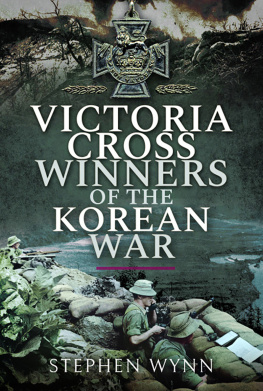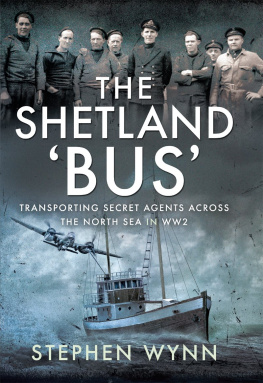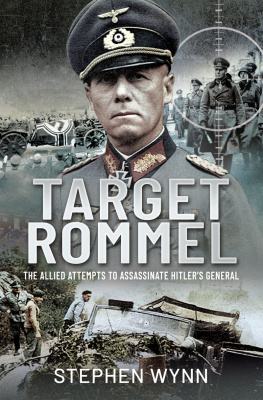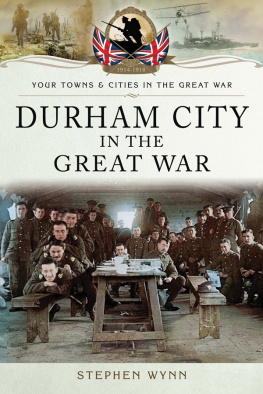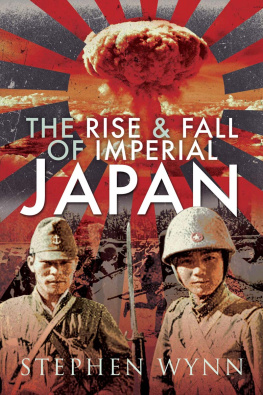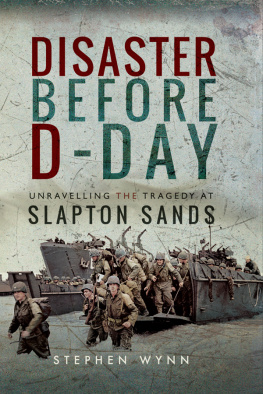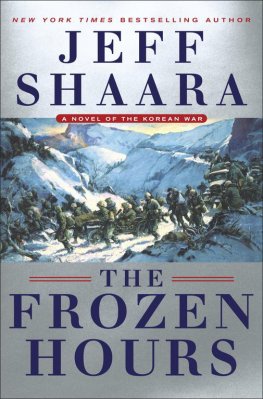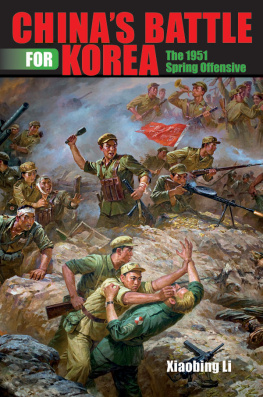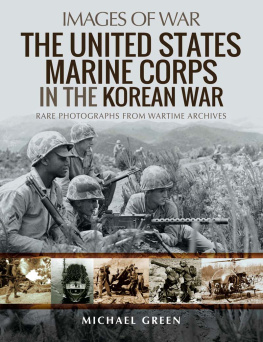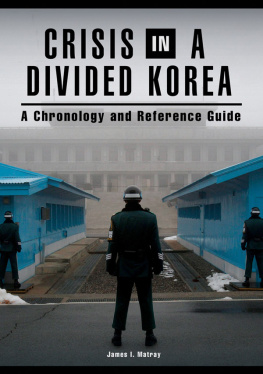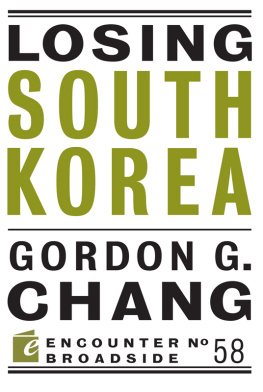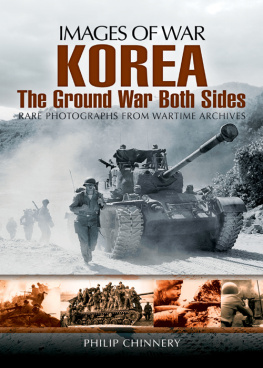Pagebreaks of the print version

VICTORIA CROSS WINNERS OF THE KOREAN WAR
19501953
VICTORIA CROSS WINNERS OF THE KOREAN WAR
19501953
STEPHEN WYNN
First published in Great Britain in 2021 by
PEN & SWORD MILITARY
An imprint of
Pen & Sword Books Ltd
Yorkshire - Philadelphia
Copyright Stephen Wynn, 2021
ISBN 978 1 52671 331 5
ePUB ISBN 978 1 52671 333 9
Mobi ISBN 978 1 52671 332 2
The right of Stephen Wynn to be identified as Author of this work has been asserted by him in accordance with the Copyright, Designs and Patents Act 1988.
A CIP catalogue record for this book is available from the British Library
All rights reserved. No part of this book may be reproduced or transmitted in any form or by any means, electronic or mechanical including photocopying, recording or by any information storage and retrieval system, without permission from the Publisher in writing.
Pen & Sword Books Ltd incorporates the imprints of Pen & Sword Archaeology, Atlas, Aviation, Battleground, Discovery, Family History, History, Maritime, Military, Naval, Politics, Social History, Transport, True Crime, Claymore Press, Frontline Books, Praetorian Press, Seaforth Publishing and White Owl
For a complete list of Pen & Sword titles please contact
PEN & SWORD BOOKS LTD
47 Church Street, Barnsley, South Yorkshire, S70 2AS, England
E-mail:
Website: www.pen-and-sword.co.uk
Or
PEN & SWORD BOOKS
1950 Lawrence Rd, Havertown, PA 19083, USA
E-mail:
Website: www.penandswordbooks.com
Sources
www.in2013dollars.com
Wikipedia.
www.distance.to
www.quora.com
www.fsmith.com
www.kosb.co.uk
www.vconline.org.uk
www.distancefromto.net
www.gc-database.co.uk
www.northeastmedals.co.uk
www.timefortruth.co.uk
www.dbpedia.org
www.cranhamlhs.org.uk
Introduction
This book is, in the main, about four men: Lieutenant Colonel James Power Carne, DSO; Major Kenneth Muir; Lieutenant Philip Kenneth Edward Curtis, and Private William Speakman, who were soldiers in the British Army and were awarded the Victoria Cross for their actions during the Korean war, 25 June 1950 - 27 July 1953.
It will also look at the awarding of the George Cross to Lieutenant Terence Edward Waters and Fusilier Derek Godfrey Kinne. The George Cross holds an equivalent level of importance to the Victoria Cross, but is awarded to civilians and military personnel who displayed conspicuous bravery that was not carried out in the face of the enemy.
To fully tell their story I have to provide you with some background, not only about each of these six brave men, but first about how they came to be fighting in a war 5,500 miles away, in a country that many of them would not only never have heard of, but probably wouldnt know where to find it on a map.
To achieve this, I will begin by looking at a timeframe that covers the period from May 1945 to June 1950, during the build-up to the outbreak of the war, and how and why the war started, just five years after the end of the Second World War. I will also touch on the war itself, relevant to the actions that saw each of the men awarded their medals.
Despite the Second World War having come to an end in 1945, there were numerous military conflicts which took place in the following years, as the world went through a period of readjustment. Countries and territories that had previously been ruled and occupied by other nations, wanted their freedom and independence in this big new world. There were some countries in the post war era, more commonly referred to as the Cold War, who, for want of a better word, became enslaved. In particular those who became satellite states of the Soviet Union, and were often referred to as Eastern Bloc countries. These included Poland, East Germany, Czechoslovakia, Hungary, Romania, Bulgaria, Albania and Yugoslavia. This not only made the Soviet Union a more powerful entity, but also acted as a security blanket to protect Mother Russia from any potential threat from the West.
Chapter One
Build up to the war
After the end of the Second World War, the Allied powers decided that the control of Korea, which had been annexed by Japan in 1910, would be shared. The move was only ever intended to be short term, prior to a return to Korean independence. The Soviet Union would take control of the north of the country above the 38th parallel, while the rest of the nation, south of that line, would be controlled by American military authorities under the command of General Douglas MacArthur.
Taking into account this was only ever intended to be for the short term, it was quite alarming to some in the political arena when not only did the Soviet Union oversee what was already in place, it also backed a Stalinist regime under Kim Il-sung, created the North Korean Peoples Army, and then equipped it with Russian tanks and artillery. In the south of the country, the political situation was somewhat chaotic, as one might expect during such changes to a countrys normal way of life. This eventually led to an American-backed administration under President Syngman Rhee, who was determined to see his nation once again reunited, if not through political means, then by force if necessary. Unlike the Soviet Unions stance in the north, however, America had trained a South Korean army to be no more than a lightly armed gendarmerie. There had been no influx of heavily armoured American battle tanks or state-of-the-art combat aircraft, just a very limited number of artillery pieces.
All that had really been achieved by the division of the country was an atmosphere of mistrust, uncertainty, and a belief by either side that a new united Korea should be based on their model. This simply raised the tension between the two halves of the country, until it came to a head on 25 June 1950, when the North Korean Peoples Army crossed over the 38th parallel and began an invasion of the South. This would not have taken place without the direct intervention and approval of Joseph Stalin.
In response to the Norths unprovoked actions, the United Nations sent a mainly American force to assist South Korean forces.
Strangely enough, despite North Korea being under the control of the Soviet Union, it was Chinese forces who fought alongside the North Korean Peoples Army, and by July 1953 it was estimated that the combined number of Korean and Chinese forces involved in the conflict had reached 1,200,000 men, so determined were they to overrun the South. When it came to the United Nations, they had a number of countries they could call upon to send troops to the stricken region to prevent the North from achieving their aims. Besides the United States and Britain, other countries including Australia, Canada, Columbia, France, Holland, the Philippines, and Turkey, also sent troops. It was the United States who made the largest contribution of troops and equipment with Britain second. By spring 1951 Britains contribution to the troop numbers of the United Nations forces had reached 12,000, and by 1952, the combined number of United Nations and Republic of Korea forces had reached 932,000.
The United Nations estimated that by the end of the war the total number of Koreans, both civilian and military forces, who had been killed on both sides was in the region of some 3 million people, while Chinese losses were put at around 900,000. The economic effect on the country as a whole was staggering, and there had been massive social upheaval for large parts of the civilian population. What made the situation even worse was the fact that neither side had actually won the war. The 38th parallel still divided the country.

